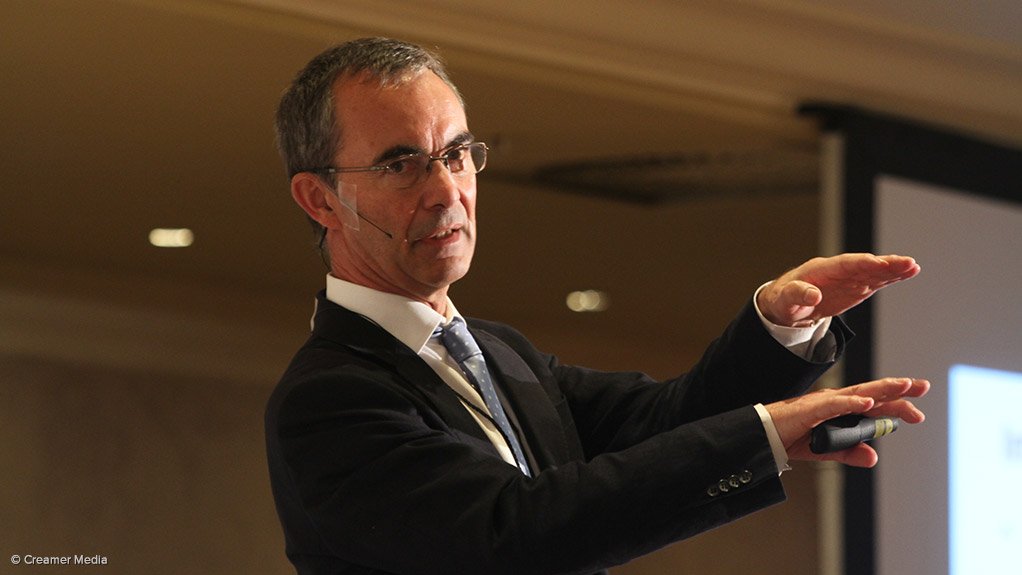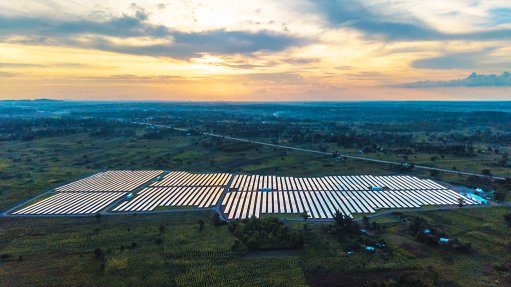SA metals manufacturers increasingly using imported inputs – Seifsa
The level of intermediate inputs imported by South Africa’s metals and engineering sector has risen strongly from around 22% 20 years ago to over 35% currently, Steel and Engineering Industries Federation of Southern Africa (Seifsa) research shows.
Speaking at the inaugural Metals and Engineering Indaba in Gauteng, on Thursday, Seifsa chief economist Henk Langenhoven said the “unfortunate pattern” meant that the sector was running regular trade deficits, despite the fact that a good deal of its production was exported.
The metals and engineering sector contributed about 6% to South Africa’s gross domestic product and represented about one-third of the country’s overall manufacturing industry.
Langenhoven attributed the rise in intermediate imports primarily to the increase in domestic production costs, underpinned by above-inflation increases in electricity and labour costs over a sustained period.
However, the increase in import penetration had also coincided with periods of production volatility, arising as a result of strikes and power disruptions. Domestic manufacturers were, therefore, increasingly sourcing cheaper inputs from abroad not only to contain assembly costs, but also for security-of-supply considerations.
But besides using more imports in their own production processes, metals and engineering manufacturers were also facing increased import competition, which had intensified in light of the “patchy” world economic recovery since the 2008/9 recession and in light of overcapacity in countries such as China.
South Africa’s policy response needed to focus primarily on raising the competitiveness of domestic manufacturers, but also needed to embrace higher levels of local content in public-procurement programmes and possibly some protection.
But Langenhoven stressed that tariffs alone would not prove effective in the longer term, arguing that the scope for “inward industrialisation” – as pursued by successive pre-democracy governments – was limited.
Comments
Press Office
Announcements
What's On
Subscribe to improve your user experience...
Option 1 (equivalent of R125 a month):
Receive a weekly copy of Creamer Media's Engineering News & Mining Weekly magazine
(print copy for those in South Africa and e-magazine for those outside of South Africa)
Receive daily email newsletters
Access to full search results
Access archive of magazine back copies
Access to Projects in Progress
Access to ONE Research Report of your choice in PDF format
Option 2 (equivalent of R375 a month):
All benefits from Option 1
PLUS
Access to Creamer Media's Research Channel Africa for ALL Research Reports, in PDF format, on various industrial and mining sectors
including Electricity; Water; Energy Transition; Hydrogen; Roads, Rail and Ports; Coal; Gold; Platinum; Battery Metals; etc.
Already a subscriber?
Forgotten your password?
Receive weekly copy of Creamer Media's Engineering News & Mining Weekly magazine (print copy for those in South Africa and e-magazine for those outside of South Africa)
➕
Recieve daily email newsletters
➕
Access to full search results
➕
Access archive of magazine back copies
➕
Access to Projects in Progress
➕
Access to ONE Research Report of your choice in PDF format
RESEARCH CHANNEL AFRICA
R4500 (equivalent of R375 a month)
SUBSCRIBEAll benefits from Option 1
➕
Access to Creamer Media's Research Channel Africa for ALL Research Reports on various industrial and mining sectors, in PDF format, including on:
Electricity
➕
Water
➕
Energy Transition
➕
Hydrogen
➕
Roads, Rail and Ports
➕
Coal
➕
Gold
➕
Platinum
➕
Battery Metals
➕
etc.
Receive all benefits from Option 1 or Option 2 delivered to numerous people at your company
➕
Multiple User names and Passwords for simultaneous log-ins
➕
Intranet integration access to all in your organisation





















